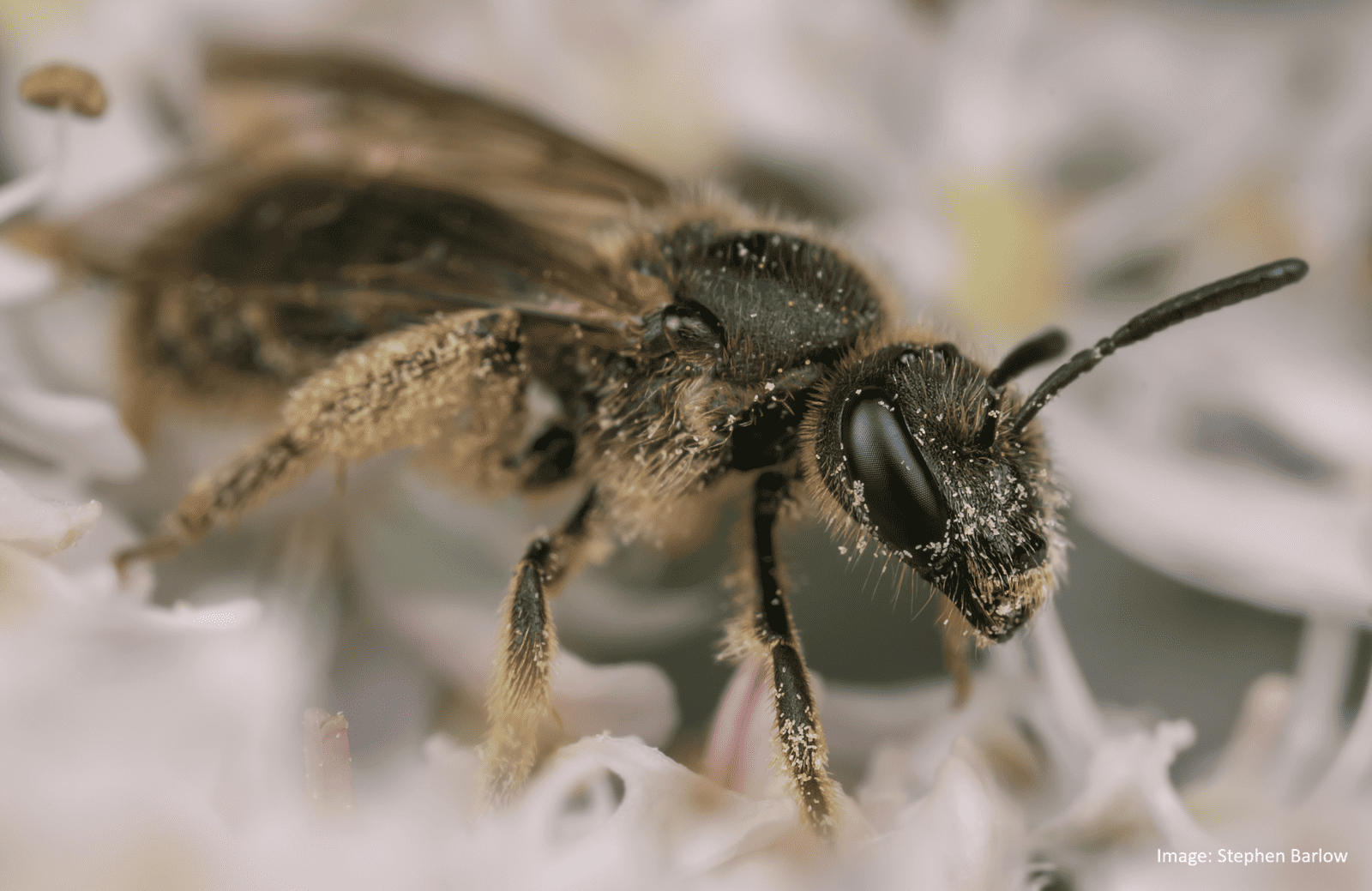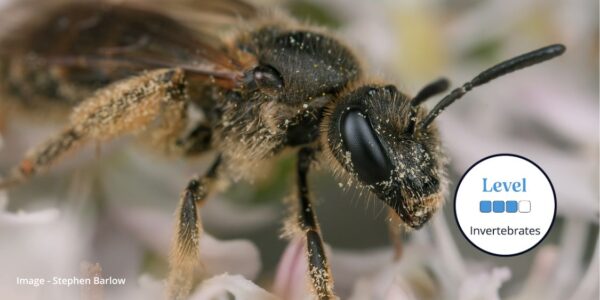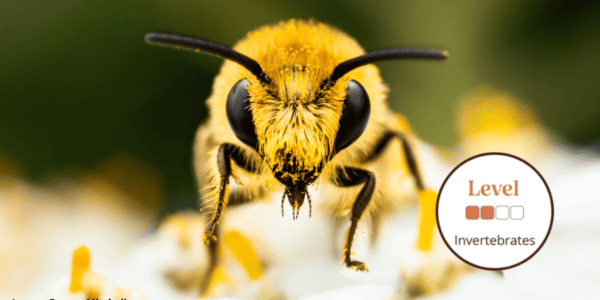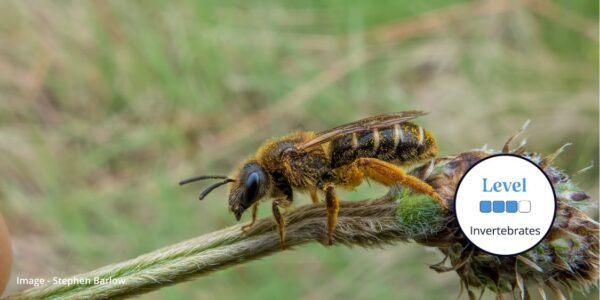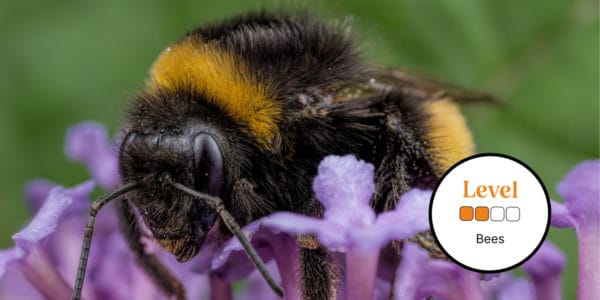This course will introduce you to the identification and ecology of solitary bees, including nesting and foraging requirements, hosts, and associated aculeate nest parasites.
This course will introduce you to solitary bee identification techniques, key features for discrimination, and will provide you with understanding of the importance of these species for conservation, ecology and recording.
Introduction to the genera and species will be through a combination of presentations, field visits, and microscope workshops using keys and prepared specimens. Each presentation will use photographs to point out the key features used in the identification guides that we will use over the weekend. The evening sessions will focus on taking specimens through keys allowing participants to build up their knowledge of each genera commonly found in Britain. The field visits will enable you to put into practice what knowledge you have gained over the weekend and further your appreciation of these fabulous insects and their needs. We will talk about specific plant associations where relevant, nesting sites and materials used and look around such sites in an attempt to identify nest parasites.
Your course takes place on a 12-hectare estate, surrounded by a rich range of habitats, including the River Severn and semi-ancient woodland, set in the heart of Shropshire with views disappearing into Wales.
Tutor: Ian Cheeseborough
Ian Cheeseborough is self-employed in the field of habitat management and entomological surveys, mainly in Shropshire. He has been studying Aculeate Hymenoptera – bees, wasps and ants for the past ninteen years and is County Recorder for this group of insects. He also runs a number of courses on Aculeates at Preston Montford FSC.
Example Timetable
Example Timetable
This timetable is subject to change but should give an outline of what to expect.
If you have booked accommodation and meals with the Centre your bedroom will be ready from 3.00 pm onward on the day of arrival and we ask that you vacate by 9.30 am on the morning of departure.
If numbers are sufficient a station pick up will be arranged at 5.30 pm from Shrewsbury Station.
Please arrive in time tor the evening meal at 6.30 pm on Friday.
The course starts after dinner with a classroom session 7.30 pm - 9.00 pm
The course ends at 4.00 pm on the final day.
Time will be made available for eating packed lunches during the day.
Friday evening
Welcome and health and safety talk. Presentation – An Introduction to Solitary Bees.
Saturday day
A day visit to a site of county importance to introduce you to the field identification of solitary bees, concentrating on genera.
Saturday evening
A presentation on preparation of specimens prior to identification; keying prepared specimens to genera using structural characters noted in the 'Field Guide to the Bees of Great Britain and Ireland'.
Sunday morning
Site visit to mixed grassland, scrub and woodland, to look at various bees found in this habitat.
Sunday afternoon
An introduction to some of the commonly encountered species in the genera we have seen on site visits over the weekend.
Sunday evening
Species identification concentrating on the genera observed throughout the weekend.
Monday day
Continuation of the previous evenings work and a look at available resources to help with further progress in aculeate identification.
What's Included
What’s included?
- Classroom learning covering the theory of the subject
- Field excursions to apply new knowledge
- Expert tuition for which we are renowned
- Clear objectives and progression
- All meals provided
You can rest assured that the absolute best content from an expert in environmental education will be provided. In choosing an this course, you will be joining thousands of people who learn with us each year.
Before You Attend
There will be a member of staff with first aid training and access to a first aid kit on site. If you have special medical or access requirements, please let us know as soon as possible so we can make any necessary adjustments.
What to Bring
- Please bring the following items along if you have them.
- x10 hand lens (available from the Centre Shop), entomological net, collecting pots.
- Vacuum flask, lunch box, walking boots/wellingtons waterproofs and haversack.
- Waterproofs and wellingtons can be hired at the Centre.
Recommended Reading
- The Field Guide to the Bees of Great Britain and Ireland. Steven Falk and Richard Lewington. 2015
- Bees of Surrey. David W. Baldock. 2008. Surrey Wildlife Trust
Sorry this course booking is closed

